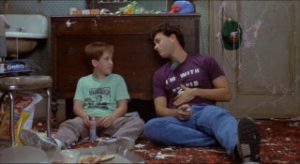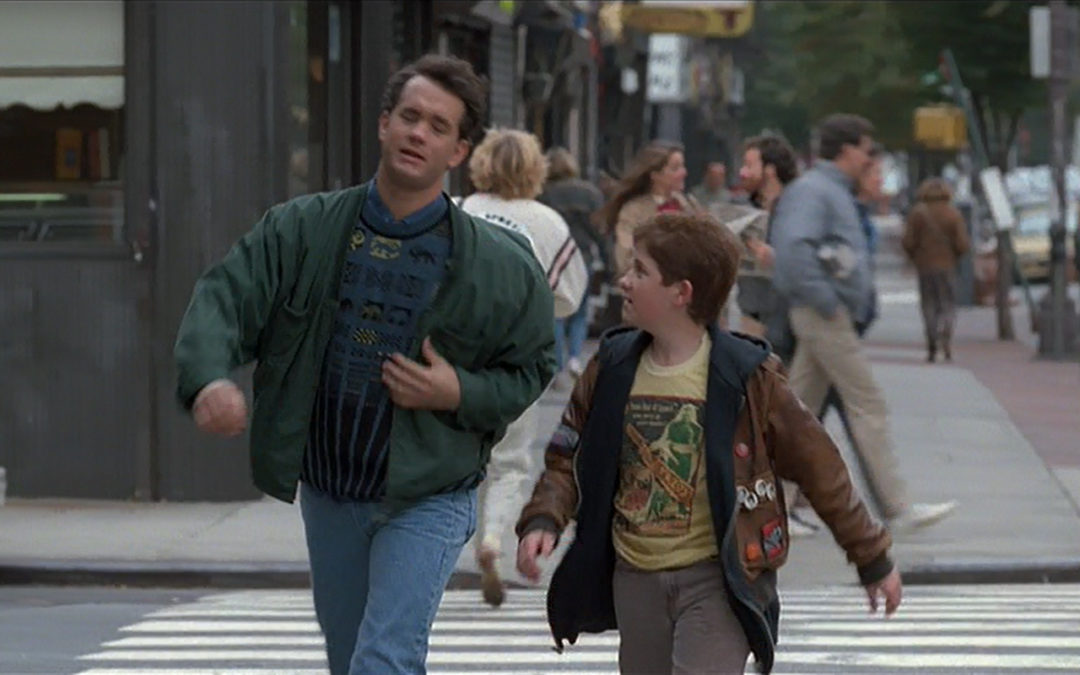That’s all for my ambitious series giving a comprehensive history of age-changing movies. What stood out to me is that I reviewed 13 movies, most of which I recommended, and some of which I really loved, yet Big is the only one considered a classic. You could possibly say the same about the 2003 Freaky Friday, but that’s a real stretch. You also just saw that I think Freaky deserves such distinction, but it’s safe to say that will never happen. It’s about as likely as it was for Vince Vaughn to get that Oscar nomination for which I advocated.
You know who was the one person in any of these movies to get a nomination though? Tom Hanks in Big! He overcame the Academy’s aversion to comedies – and let’s not forget the movie itself got an Original Screenplay nomination. It’s the only one of any of these movies to get any nominations – on top of being the most profitable out of any of them!
What makes it so special? After meditating over it, I first noticed how different Big’s plot was from that of any of the other movies. Of the 13 movies, seven were about an adolescent switching bodies with an older member of his/her family, two were about a teen switching bodies with an adult criminal, one was about a child traveling forward in time into her own adult form, and two were about an adult resuming his or her own adolescent form in the present day.
Big was the only one featuring a child turning into his own adult form in the present day. Josh suddenly needs to live life as an adult without any of the groundwork laid out for him, and it’s overwhelming. He understandably lies in his strange bed crying the first night.
What helps him get through that in one piece, and helps him get on his feet and thrive, is Billy. Josh tells Susan late in the film that he misses his family, but we see little interaction with the mother and almost none with the father, while the sister is just a baby. That was a smart decision on the filmmakers’ part. If the focus was on the relationship with the family, then it would have come across like a treacly story preaching about family values and/or reminding people that it’s nice to have parents taking care of you when you’re small because you need to be responsible for yourself when you’re big.
But no – the only person from child Josh’s life that adult Josh has consistent or meaningful interaction with is Billy. Moreover, Josh’s eventual longing back for his old life seemingly has nothing to do with the family – it’s Billy’s yelling at him that gives him an epiphany and then he walks longingly past the playground where children are playing with each other, not spending time with family members. Josh is reaching that age where he would, to some extent anyway, want to be away from the family, and understandably he cherishes the opportunity to suddenly buy whatever he wants and have slumber parties whenever he feels like it. His new life might be more fun than anything even Billy could provide him but that’s not the point.
I now feel that I really hit the nail on the head during my Big review. The whole movie could be considered a metaphor for pursuing carnal/hedonistic/materialistic pleasures at the expense of real human connections. While Susan and others are crazy about the adult Josh Baskin, a charming toy executive, that’s just a character the real Josh Baskin, an insecure tween, is playing. Whatever perks Josh can get from being close with the others, what really matters much more is the friendship Billy offers him. Billy is the one who knows all the true things about Josh – how he broke his arm, what bully had picked on him, what is actual age is – and it was Billy who provided invaluable care when Josh, who hadn’t figured out how to play his make-believe role yet, was frightened and devastated.

That may beg the question as to why Josh told Susan he wanted to go home because he missed his family, I think that’ s because it would sound silly to say he wanted to go home for Billy. Yet while it may seem crazy to some that Josh willingly gave up his awesome apartment, ton of money, unlimited independence and hot girlfriend, or that all of that combined meant less to him than his friendship with his homeboy, it rings true. The other stuff was based on complete lies; the friendship with Billy was based on the deepest truths. That’s why the masterpiece of a movie transcends its “kid in adult body” plot and becomes a classic worthy of endless viewings.
That’s not to take anything away from “adult in kid’s body and/or kid in adult’s body” movies in general though. You can see from this whole series how awesome such films can consistently be when done right, and now that I’ve written this coda it’s time to move on to my next series of posts. Stay tuned!

Recent Comments